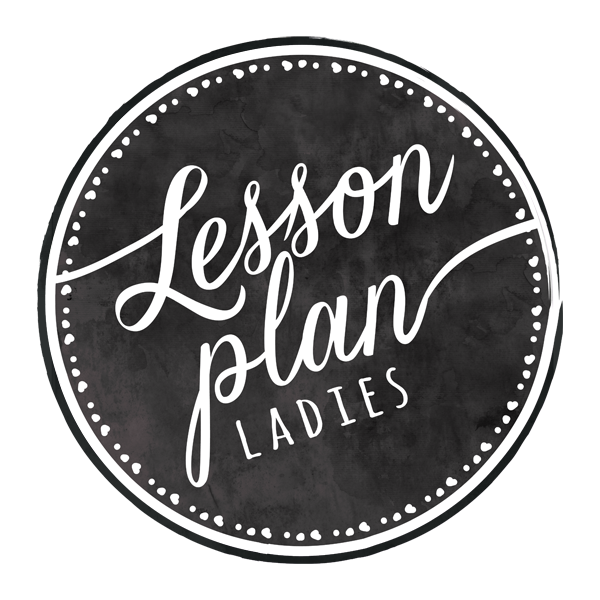How to Teach Your Child to Read
/"Reading is simple." - Jessie Wise and Susan Wise Bauer in The Well-Trained Mind
To a new home school mom, teaching reading sometimes seems like an enormous, foreboding task.
It doesn't have to be. Reading can be simple.
Lesson Plan Ladies offer Phonics and Spelling Lesson Plans which are written based on the fabulous phonics program, Spell to Write and Read (SWR) by Wanda Sanseri. SWR is a multi-sensory program that allows children to write, speak, and spell their way into reading.
Do we follow the program exactly as written? Pretty closely, but not completely. We have simplified some of the information to make it more user-friendly. Also, LPL really, really love the awesome spelling reinforcements in SWR but use another another program for English grammar.
Here are SOME of LPL's phonics and spelling goals for each grade level available (Look forward to the upcoming 4th grade plans in 2018!):
Pre-k Phonics and Spelling Lesson Plans (recommended for ages 4-6)
teach kids to recognize, read, and write 31 of the 70 phonograms - all single letter and some multi-letter phonograms (from SWR)
teach children to say eight spelling rules (from SWR)
teach students to correctly write D'Nealian-style phonograms, starting with lower case and adding capitals as needed
children play games to increase phonemic awareness (from Phonemic Awareness Activities)
teach kids to spell and analyze 25 beginning words (LPL wrote short vowel word lists, with simple words, such as "ran" and "pig", for young children.)
Kindergarten Phonics and Spelling Lesson Plans (recommended for ages 5-7)
teach kids to recognize, read, and write 56 of the 70 phonograms (from SWR)
teach children to say 19 spelling rules (from SWR)
teach students to correctly write D'Nealian-style phonograms, starting with lower case and adding capitals as needed
children play games to increase phonemic awareness (from Phonemic Awareness Activities)
teach kids to spell and analyze 100 words - to about a second-grade level (lists A through E from The Wise Guide for Spelling)
1st Grade Phonics and Spelling Lesson Plans (recommended for ages 6-8)
teach kids to recognize, read, and write all of the 70 phonograms (from SWR)
teach children to say 24 of the 29 spelling rules (from SWR)
students practice correctly writing D'Nealian-style phonograms, including capitals
teach kids to spell and analyze 450 words - to about a third-grade level (Lists A through K-5 from The Wise Guide for Spelling)
2nd Grade Phonics and Spelling Lesson Plans (recommended for ages 7-9)
teach kids to recognize, read, and write all of the 70 phonograms (from SWR)
teach children to say 27 of the 29 spelling rules (from SWR)
students practice correctly writing D'Nealian-style phonograms, including capitals, print, and cursive
teach kids to spell and analyze about 600 words - to almost a fourth-grade level (Lists H-1 through M-4 from The Wise Guide for Spelling)
3rd Grade Phonics and Spelling Lesson Plans (recommended for ages 8-10)
teach kids to recognize, read, and write all of the 70 phonograms (from SWR)
teach students to recognize, read, and write 2 advanced phonograms (from SWR)
teach children to say all of the 29 spelling rules (from SWR)
students practice correctly writing D'Nealian-style phonograms, including capitals, print, and cursive
teach kids to spell and analyze about 600 words - to a middle-of-fourth-grade level (Lists K-6 through O-6 from The Wise Guide for Spelling)
4th Grade Phonics and Spelling Lesson Plans (Recommended for ages 9-11)
teach kids to recognize, read, and write all of the 70 phonograms (from SWR)
teach students to recognize, read, and write 5 advanced phonograms (from SWR)
teach children to say all of the 29 spelling rules (from SWR)
students practice correctly writing D'Nealian-style phonograms, including cursive
teach kids to spell and analyze almost 700 words - to a solid fifth-grade level (Lists M-5 through Q-5 from The Wise Guide for Spelling)
LPL's phonics and spelling plans are a COMPLETE, as in not supplemental, rock-solid foundation for beginning or experienced readers/writers. Our pace is a bit less strenuous than SWR recommends. However, our plans follow SWR's intended scope and sequence, and your children will most likely read/spell well above grade level by the end of each year.
To make teaching reading, writing, and spelling even easier, LPL created tailor-made penmanship books to accompany each grade level's phonics and spelling lesson plans. Click here to see this time-saving resource! Also ideal and available are LPL's reading lesson plans, which use literature to encourage children to read fluently, comprehend words in context, and learn elements of literature. Click here to view these helpful plans.
With LPL's plans to assist you, teaching reading IS simple. Happy home schooling!
(Edited on 5/1/18)












